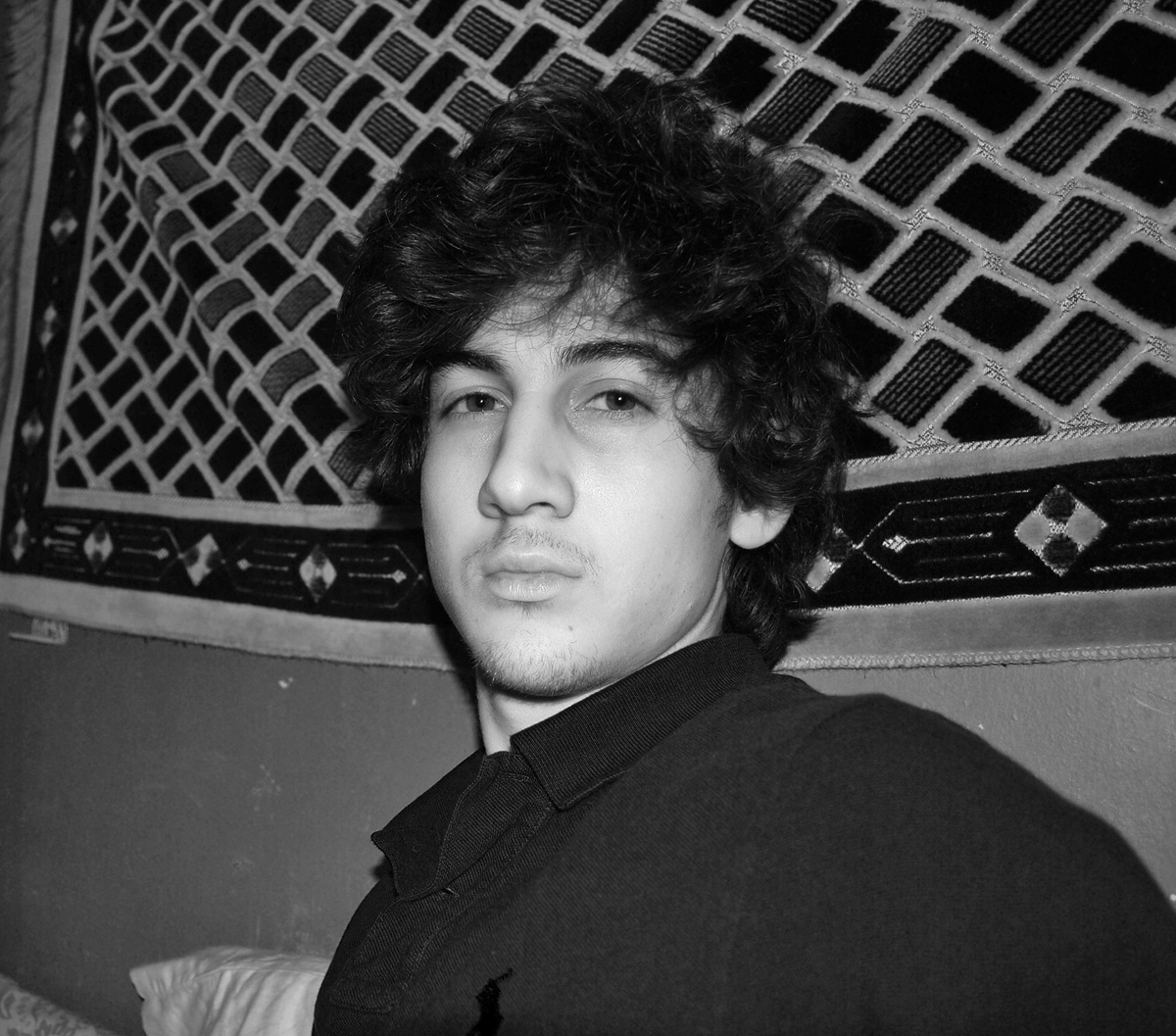The Truth Is Out There

Photo via AP
Did the FBI recruit or attempt to recruit Tamerlan as an informant or agent?
Baker’s evidence is far from conclusive, but he points out several suspicious and unexplained oddities. Officially, the FBI claims that it first investigated Tamerlan Tsarnaev after getting a tip from Russian intelligence that he was becoming radicalized. Yet, Baker notes, the New York Times has reported that Russian intelligence agents first contacted the U.S. government about Tamerlan in March 2011—and also that the FBI met with Tamerlan two months earlier, in January 2011. The reporter, veteran Times correspondent Eric Schmitt, told me he stands by the story and the timeline. Baker’s website asks: How did the FBI originally learn about the Tsarnaevs, if not from the Russians?
Baker also points out that, even though the FBI put Tamerlan on a watch list in 2011, he was allowed to travel to Dagestan and freely return to the United States in 2012. A flag placed on Tamerlan’s name by a U.S. customs official had expired by the time Tamerlan reentered the country.
Of course, Baker isn’t the only one asking the question. In October 2013, Senator Charles Grassley, an Iowa Republican, wrote a letter to FBI Director James Comey—widely reported in the mainstream media—asking, “Other than Tamerlan Tsarnaev’s interview by [FBI] agents following the warning from Russia, has the FBI had any other contact with either of the brothers?” Comey’s response did not provide an answer. Grassley also asked Comey, “Did the FBI attempt to use the tactic of ‘recruitment’ or a sting operation with Tamerlan Tsarnaev? If not, why not?” Comey denied that the FBI had attempted to recruit Tamerlan, but did not elaborate.
Who killed MIT police officer Sean Collier?
A month after the bombings, under the headline “Boston MIT Cop Cover-up,” Baker compared Collier to J. D. Tippit, the Dallas police officer whose murder, just after the assassination of JFK, led to the arrest of Lee Harvey Oswald. “In both cases,” Baker wrote, “it was the killing of a police officer that turbocharged the police pursuit—and that, once the suspect was apprehended, convinced the public quickly that the police had their man.” Beyond that, similarities evaporate—yet the memory of Tippit haunts Baker’s theories on the Collier murder. Baker says the official motive given for the Tsarnaevs’ alleged killing of Collier—that they wanted his gun—doesn’t make sense, because no one took Collier’s gun. (The government claims the brothers tried to get the gun out of its holster but failed.) And Baker ascribes an ominous weight to evidence that the FBI was active around MIT’s campus before the chase for the Tsarnaev brothers began—including an October 2013 admission by the Massachusetts State Police and the Boston Police Department that “The Joint Terrorism Task Force was at M.I.T., located in Cambridge, MA, on April 18, 2013, on a matter unrelated to the Tsarnaev brothers.” Baker also cites three unnamed law enforcement officials who told the New York Times in April 2013 that surveillance-camera footage showed two people approaching Collier’s car from behind but did not show their faces. For Baker, these unexplained facts are enough to cast doubt on the official story that the Tsarnaevs killed Collier.
Why is the alleged carjacking victim, “Danny,” still anonymous?
“Danny” is the alias given to the anonymous Chinese immigrant who said the Tsarnaevs carjacked him. He also claimed that Tamerlan confessed to detonating the bombs and killing Collier.
Baker is critical of Danny’s anonymity and his relationship to Northeastern University criminologist James Alan Fox, who has acted as an intermediary between Danny and the press. Baker calls Fox, who has publicly condemned the Tsarnaevs, “the least curious criminologist I remember encountering in a long time.” Fox, who regularly gives media interviews, tells me that he was asked to assume this role by Danny’s former academic adviser, a fellow Northeastern professor, who knew Fox by reputation. “It wasn’t because I was a criminologist,” he says. “It was because I have a good deal of experience dealing with the media.” Fox concedes that he is unaware of any other sensational case in which a key witness has remained anonymous, but says that question falls outside the scope of his expertise. He likens his role as Danny’s media gatekeeper to one that family members play in high-profile cases, adding that in this case, Danny’s family is in China. Through Fox, Danny declined to comment as he prepares to testify at Dzhokhar Tsarnaev’s upcoming trial. “I know who Danny is,” Baker says. “He’s just a total liar.”
For more, read our profile on Russ Baker: Boston Isn’t Strong. Boston Is Scared Sh*tless

